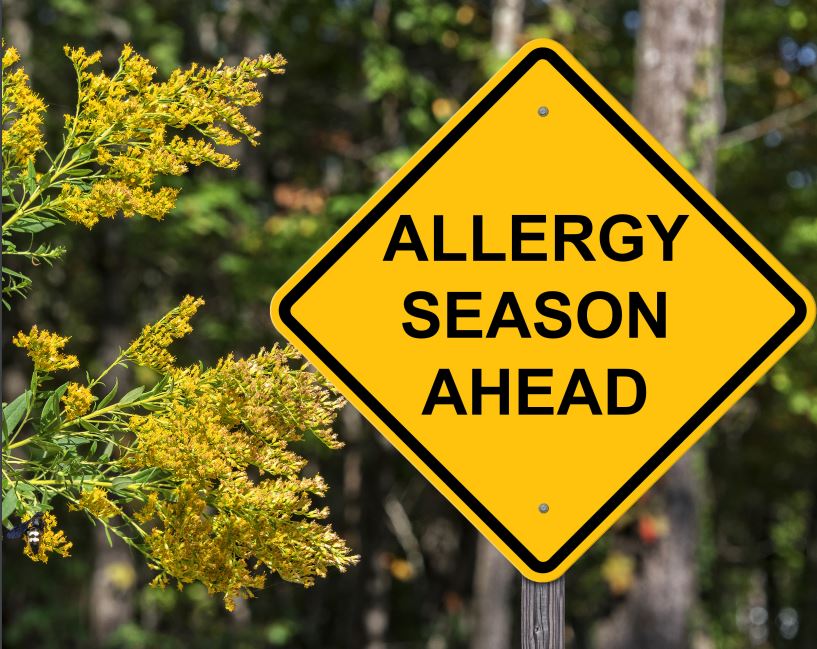TIPS TO PREVENT SPRING ALLERGIES

Ah yes, spring is in the air—along with all the sneeze-inducing pollen! Seasonal allergies are extremely common, but no need to suffer this year. Numerous strategies can help reduce or prevent your symptoms before they start. The first steps in prevention is to know what causes your allergies and how to control your environment. Then you can minimize your
symptoms.
To prepare for the upcoming high pollen counts, we recommend the following:
- MONITOR YOUR POLLEN COUNTS. Check your local weather forecast or the National Allergy website to get daily pollen counts as well as the breakdown of pollen or mold types.
- DRIVE WITH YOUR WINDOWS UP. Also, shut the vents and recirculate the air inside your vehicle or use your air conditioner.TIPS TO PREVENT SPRING ALLERGIES PREVENTION. While there is no way to completely avoid allergens during allergy season, there are precautions you can take to reduce exposure:
- STAY INDOORS DURING HIGH COUNTS. If you must go outdoors, do so later in the day when pollen counts are typically lower.
- VACUUM AND DUST FREQUENTLY. The more allergens you can remove from your furniture and floors the better. Pet-friendly vacuum cleaners often do the best job of sucking up pollen and other allergens.
SYMPTOM RELIEF
Here are some remedies that can reduce your histamine response once you have been exposed to allergens:
- AVOID DIETARY TRIGGERS. Dietary triggers such as dairy, gluten, sugar, artificial sweeteners, and preservatives all can lead to increased inflammation in the nasal and respiratory pathways causing worse allergy symptoms.
- SIP SOME APPLE CIDER VINEGAR. Apple cider vinegar helps break up mucus in the body, letting you breathe again. Try diluting 1 to 2 tablespoons in a glass of water or with lemon juice.
- EAT SOME PROBIOTICS. Although mostly recognized for their use in balancing our gut bacteria, probiotics have been shown to support the immune system, which is also responsible for our allergic response to many triggers.
FLUSH YOUR NOSE. Nasal irrigation is the draining of saline from one nostril through another in order to flush out the mucus. You can use sprays, bulb syringes, or Neti pots, which look like small teapots.
If you are interested in finding a primary care physician or allergy specialist affiliated with Southern California Hospitals at Culver City and Hollywood, click here.
© 2019 Laura S. Conley Phoenix Health and Wellness Solutions
